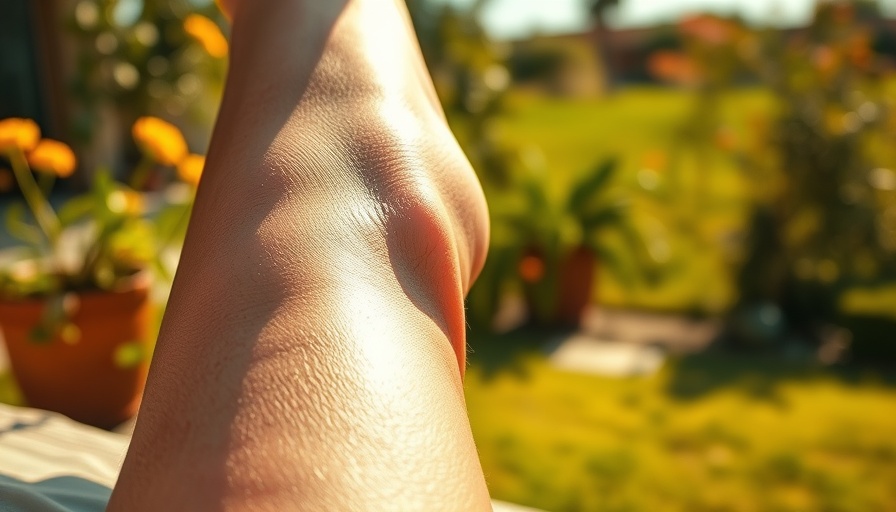
Understanding the Impact of Warm Weather on Varicose Veins
As temperatures rise, many of us relish the warm weather, but for those with varicose veins, the heat can bring discomfort or exacerbate symptoms. Varicose veins, those swollen and twisted veins appearing mostly on the legs, can cause a range of symptoms, from itching and aching to more severe conditions. But what is the connection between warm weather and this vascular issue?
Why Warm Weather May Worsen Symptoms
According to health experts, the dilatation of blood vessels that occurs in warmer temperatures can increase blood volume within the veins, leading to additional pressure. This is particularly crucial for older adults whose blood vessels may already be compromised. Swelling and pain can increase with prolonged heat exposure, making summer a challenging time for those prone to this condition.
Underlying Medical Conditions: What You Need to Know
Importantly, varicose veins can be a sign of an underlying medical problem. As noted by medical experts, it's essential to understand that they may indicate venous insufficiency, where veins struggle to return blood to the heart efficiently. This not only exacerbates varicose veins but may also heighten the risk for more severe complications, such as blood clots. Therefore, if you notice new or worsening symptoms, consulting a healthcare professional is crucial.
Common Misconceptions About Varicose Veins
One prevalent misconception is that varicose veins are merely a cosmetic concern. However, as we’ve established, they can signal deeper health issues. It's essential to address these problems, and taking action early can help avoid potential complications. For example, regular check-ups and monitoring can be incredibly beneficial.
Practical Tips for Managing Symptoms in Warm Weather
For the elderly and those with existing varicose veins, there are several strategies to alleviate discomfort during warmer months:
- Stay Hydrated: Drinking plenty of fluids helps blood circulation and minimizes swelling.
- Elevate Your Legs: When resting, elevate your legs to improve circulation and reduce pressure.
- Avoid Prolonged Heat Exposure: Try to stay cool and avoid direct sunlight for extended periods.
- Wear Compression Stockings: These can help maintain steady pressure on your legs and reduce swelling.
Encouragement for Staying Active
Maintaining a healthy lifestyle is essential as we age. Exercise plays a vital role in supporting vein health. Regular activities like walking, swimming, or cycling are excellent ways to stimulate circulation and keep blood flowing effectively. Even gentle exercises, tailored to your capability, can significantly impact your overall well-being.
Summing It All Up
So, while the warm weather may exacerbate symptoms of varicose veins, understanding the problem and taking proactive steps can alleviate pain and discomfort. Always consult with a healthcare provider if you're concerned about your vascular health, particularly as you age. Taking these symptoms seriously can enable you to enjoy a more comfortable and active lifestyle, even during the heat of summer.
Stay informed, stay proactive, and embrace healthy living!
 Rij toevoegen
Rij toevoegen






 Rij toevoegen
Rij toevoegen



Write A Comment